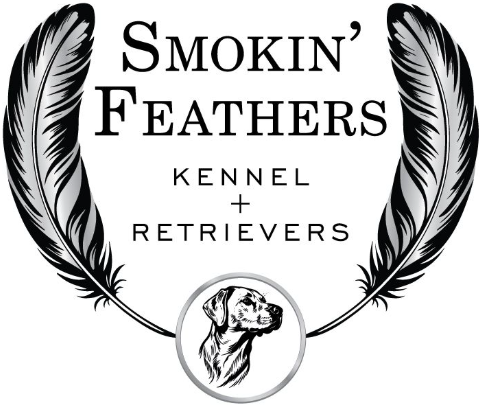FAQs
Smokin' Feathers Kennel and Retrievers
Have a question about dog training, boarding, or breeding? We have the answer. Check out these FAQs and contact our team now for more information!
-
What age is best for starting my dog in obedience/retriever training?
We recommend starting training when your puppy is about 6 months old. This timeframe helps the puppy build confidence and gain crucial socialization skills before beginning formal training. Starting too early may lead to a hesitant and insecure dog.
-
I just got an 8-week-old puppy, what should I do to ensure proper socialization before formal training at 6 months of age?
Here’s a list of experiences we like our young dogs to encounter before training starts:
- Car, boat, and ATV rides
- Walks through the woods
- Children
- Water
- Loud and sudden movements
- Boats
- Height
- Slick surfaces
- Decoys
Another emphasis we place on puppies is bringing out prey drive. Here is a list of things we do to achieve this:
- Simple land and water retrieves
- Exposure to feathers, and dead birds
- Exposure to live birds
-
I have a dog ready to start water work, but it is in the middle of the winter. What should I do?
You should hold off. Retrieving a limit of ducks in a flooded rice field is quite different from performing a swim-by in the same temperatures. The risks involved are greater than the potential benefits. Waiting for warmer water temperatures poses no harm.
-
I live in an apartment complex in a crowded city, and I’m worried my neighbors will be hindered by my puppy crate training, I do not have the resources available to socialize the puppy while living here. What should I do?
We recognize that everyone's circumstances are unique, and it can be quite challenging to raise puppies while balancing a job and being mindful of neighbors and those around you. If you’re facing this challenge, consider our puppy primer program, designed to assist dog owners who feel overwhelmed by the various aspects of their puppy's growth and development.
Learn More About Smokin' Feathers Kennel and Retrievers
Located in Grant, AL. Smokin' Feathers Kennel and Retrievers specializes in dog training, dog breeding, and dog boarding. Free, same-day consultations. Same-day appointments. Thousands of acres of training ground. Call us now.

Share On: